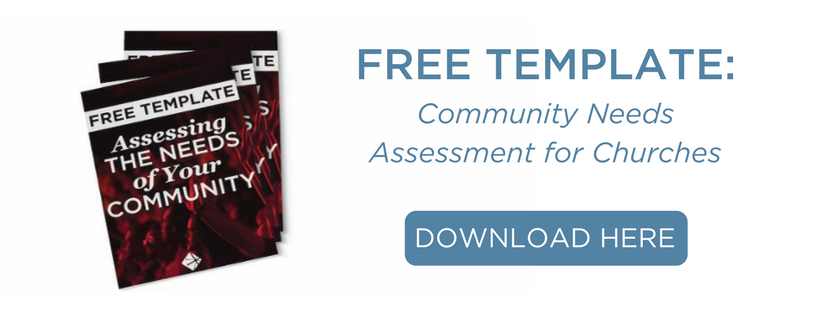Does Your Church Know Who To Reach?
By: Vanderbloemen

We are fortunate to serve churches from 70 to 70,000 in size, including around 100 different denominations and tribes. The scope of this work has been a tremendous gift; seeing the diversity and unity of the Church is a beautiful thing. At a fundamental level, it has been a privilege to see that one church cannot reach every person on this earth, but the Church can.
It can be a great comfort to know that the Church is bigger than your church. It can free your church to take responsibility for the ministry you have in front of you, and give responsibility to God and the rest of the body of Christ for the other responsibilities.
Does your church know who you are uniquely called to reach? It can be an uncomfortable question to ask, because it can be easily misunderstood. I am not asking if you are intending to exclude anyone from your ministry. I am asking if you have met your neighbor. Do you know what they need? Answering these questions will help you get started in the process of identifying who you are uniquely called to reach.
Who is attending your church?
This discovery starts by reflecting on who has responded to your ministry and why they have stayed at your church. This requires many conversations with the people of your church. Ask them: what brought you in the door the first time? What keeps you coming back?
To fully engage and serve the people of your congregation, it is crucial to first understand who they are and what they value. Find out why they are drawn to your church!
Do you understand the culture of your geography?
Is your church urban, suburban, or rural? Is the population around your church diverse or homogeneous? Is your community multi-generational, or does it skew one way or the other? How far do people travel to attend your church?
What do people of your community spend time doing? Finding out how they spend their time throughout the week will help your church either engage in those activities or intentionally offer an alternative way to spend their time.
[FREE TEMPLATE: COMMUNITY NEEDS ASSESSMENT FOR CHURCHES]
What do you do well?
Understanding what your church does well will help you understand the people you are most equipped to reach.
Some of these correlations are more obvious than others. If your greatest strength is your children’s ministry, then you are likely more conscious about reaching families in your outreach efforts. We can typically rattle off five things our church could do better, but we should also be aware of the five things we are proud of and want to build upon.
What do other churches do better than you?
Do you trust other churches in your community to reach people you are not reaching? Do you have the humility to recognize your church is not right for every person? Do you have relationships with other local churches?
We must remember that other local churches are not competition, they are partners. If you are modeling your programing after the church around the corner, then you are lacking trust in their ability to do it effectively, and you are doing the community a disservice by not offering a diversity of programing that leads different people to the same place.
Knowing who you are as a church helps you identify who you are for. Every church should strive to be a church that opens their doors to anyone who desires to participate, but every church should also be intentional in developing an understanding of who is around them and how they can serve.
How has your church reached out to the community?




